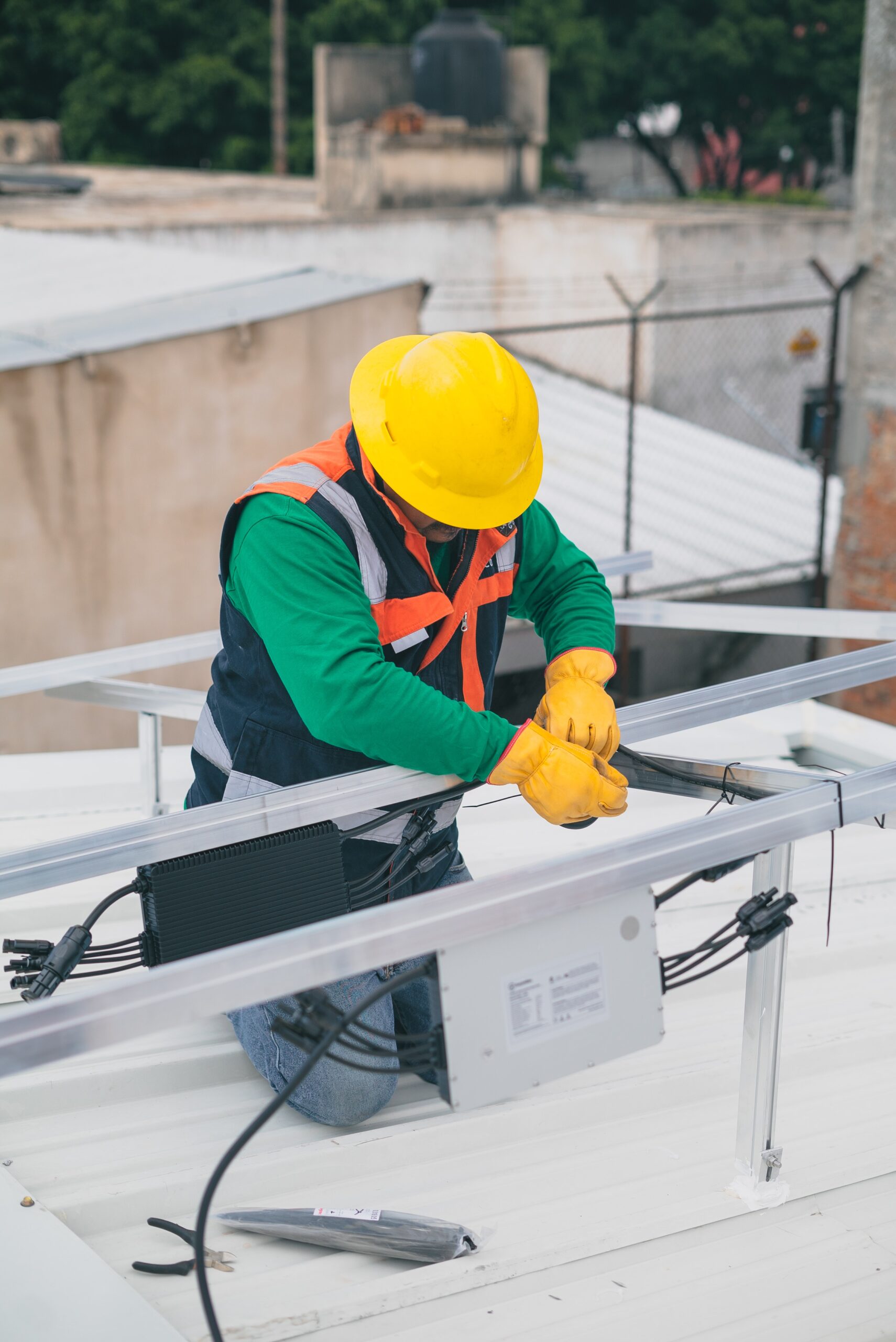Thinking of becoming an electrician in the Chicago area?
Illinois is the highest-paying state for electricians in the United States, so planning for an electrical career in Chicago has its advantages. Being a skilled laborer means that your services will be needed long into the future. With nearly 2.7 million residents, the city of Chicago needs plenty of knowledgeable electricians, and that’s not likely to be changing any time soon. Out of the 711,200 electricians nationwide, 21,050 work in Illinois, and 15,610 of those work in Chicago.
The city of Chicago offers lots of jobs in electrical work. There is work for industrial electricians in power plants and factories. Commercial electricians have opportunities in Chicago’s vast office complexes. Residential electricians in Chicago can and do make good money in many cases. There are jobs for maintenance electricians and auto electricians, too. Whether you are a lineman or a wireman, you are apt to find a fair selection of jobs available in Chicago.

Becoming a licensed electrician takes both knowledge and experience in the field. The necessary experience will take about four years to acquire through apprenticeships, including about 500 to 800 hours of training in a classroom. On top of that, electricians working in Chicago and using the Chicago Electrical Code must be separately licensed by the city of Chicago. Chicago city licenses cost $150/year.
How Much Do Electricians Make in Chicago?
Generally speaking, electricians are very well-compensated in the state of Illinois. And they do even better in Chicago. The state is recognized by the U.S. Bureau of Labor Statistics as the highest-paying for electricians. In total, Illinois’ 21,050 electricians make an average salary of $83,140. That’s an hourly mean wage of $39.97.
But Chicago electricians do slightly better than the state average. In Chicago, the average electrician’s salary is $86,600, or $41.64/hour. This makes them the third-highest-paid urban area electricians in the nation, behind just San Francisco and San Jose, California.
How Long Does It Take to Become an Electrician in Chicago?
Unlike many other states, Illinois does not have a state electrician’s license. That means it falls on city and county departments to issue licenses. Most municipalities will require you to work for at least 8,000 hours (4 years) in the electrical field, typically through an apprenticeship program. You will also be required to take some classroom testing.
If you want to do class 1 electrical work in the city of Chicago, you will need to fulfill one of the following three requirements:
- “Be a licensed supervising electrician
- “Be an individual who has successfully completed an electrician apprenticeship program recognized by the United States Department of Labor and requiring at least 8,000 hours of relevant on-the-job training and classroom instruction, as evidenced by a written certificate of completion
- “Be an individual who is currently enrolled in an electrician apprenticeship program recognized by the United States Department of Labor and requiring at least 8,000 hours of relevant on-the-job training and classroom instruction”
Keep in mind that the city of Chicago issues electrical licenses to businesses, not individuals, although those businesses can be (and often are) sole proprietorships. Chicago issues licenses that renew after 1 year and cost $150, available via the city website. If you do not yet meet one of the three requirements listed above, you must work under the direction of a licensed electrician while working in the city of Chicago, most likely through an apprenticeship program.

How to Become an Electrical Apprentice in Chicago
There are an assortment of apprenticeship programs to choose from. Most of these will require 8,000 hours of service, along with additional classroom instruction hours. You will also need to meet these requirements:
- Be 18 years old
- Have a high school diploma/GED
- Have reliable transportation
- Be demonstrably, physically fit
- Pass an aptitude test
- Pass an algebra test
How Do You Join the Electrical Workers Union in Chicago?
If you want to be an IBEW union apprentice, you must pass 11 weeks of training at West Side Tech in Chicago, along with a third-, fourth-, and fifth-year program spanning more than 1,200 hours of in-class and hands-on learning. And then you must pass orientation. Orientation to become a Local 134 apprentice requires you to meet physical fitness requirements that mirror on-the-job scenarios.
How does Chicago’s cost of living compare to the rest of the United States?
As mentioned earlier, Chicago electricians are among the best-compensated in the nation. Add to that a city that is relatively inexpensive to live in, and you have a recipe for financial success.
In Chicago, like most U.S. cities, the cost of living is higher than the national average, but prices there across the board are lower compared to most other major metro areas in the U.S. Expect to pay about 25% more for things in the Chicago area than the national average. Housing will eat up a big chunk of you monthly budget; most Chicagoans spend 40% of their income on housing.
US Bureau of Labor Statistics
https://www.bls.gov/ooh/construction-and-extraction/electricians.htm#tab-6
City of Chicago Supervising Electrician License
https://www.chicago.gov/city/en/depts/bldgs/supp_info/TLdetails/SupvEL.html
Consumer Price Index, Chicago-Naperville-Elgin area
https://www.bls.gov/regions/midwest/news-release/consumerpriceindex_chicago.htm

